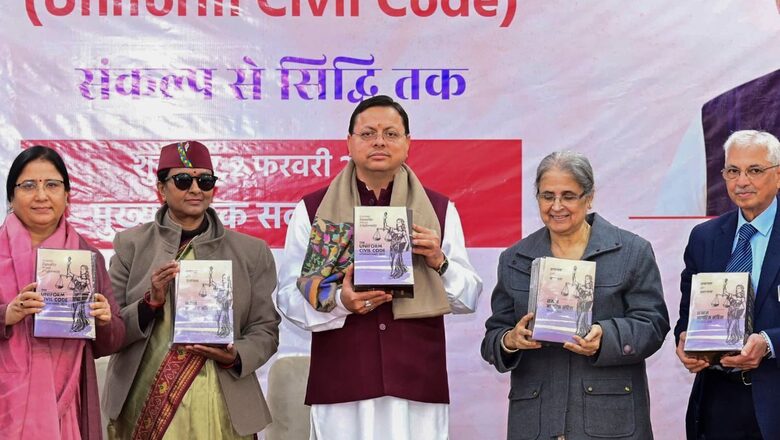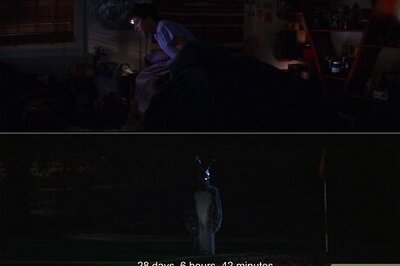
views
A state government-appointed panel to prepare a draft of the Uniform Civil Code (UCC) on Friday submitted the document to Uttarakhand Chief Minister Pushkar Singh Dhami.
The draft was handed over to the chief minister by the five-member committee headed by retired Supreme Court judge Ranjana Prakash Desai.
A meeting of the state cabinet has been called on Saturday to discuss the draft, days before the government has called a special session of the assembly. A special four-day session of the Uttarakhand assembly has already been convened from February 5-8 to pass a legislation on the UCC.
If implemented, Uttarakhand will become the first state in the country after Independence to adopt the UCC. It has been operational in Goa since the days of the Portugese rule.
Here are some of the features of the proposed Uniform Civil Code in Uttarakhand:
- The Uniform Civil Code will provide a legal framework for a uniform marriage, divorce, land, property and inheritance laws for all citizens irrespective of their religion in the state. The UCC will cover areas like marriage, divorce, maintenance, inheritance, adoption and succession.
- The 300-page draft of the UCC will have around 400 sections and there will be no tampering with Schedule Tribe, Transgender rights, religious matters, and traditions in the draft.
- According to reports, the key aspect of the draft would be making halala, iddat, and triple talaq — which are practices governing marriage and divorce in Muslim personal law — punishable offences. The UCC draft has also recommended ban on polygamy.
- As per the sources, the draft suggests that live-in relationships will be subjected to mandatory registration in the state. Additionally, the draft also stated that the couple should necessarily be aged between 18 to 21 and should provide the state government with their parents approval.
- Despite different traditions in marriage in different religions, there will be a common law for divorce and maintenance. Similarly, there will be a common law for adoption and determining heir.
- Women of all religions, including Muslims, will have equal rights in their father’s property.
- There is no provision for determining the number of children in the draft, increasing the age of marriage.
- There is no law regarding adoption in Muslim, Christian and Parsi communities. Under the proposed law, people of all religions can be allowed to adopt, but they will have to choose a child of their own religion for adoption.
- The draft also includes provisions related to the minimum legal marriage age of women, along with suggestions given on retaining the legal age of 18 years as well as increasing it to 21 years, according to The Indian Express.



















Comments
0 comment